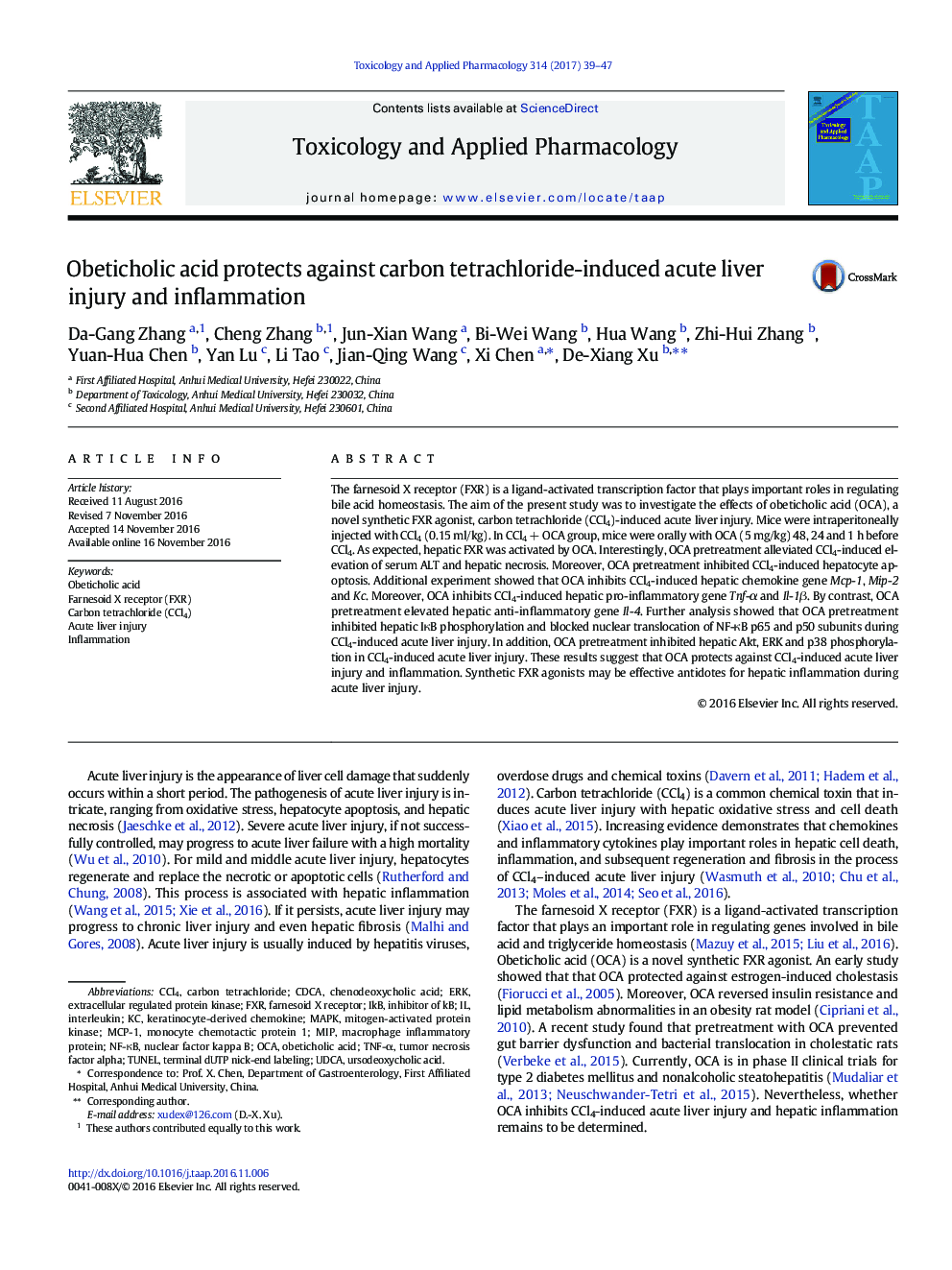| Article ID | Journal | Published Year | Pages | File Type |
|---|---|---|---|---|
| 5558526 | Toxicology and Applied Pharmacology | 2017 | 9 Pages |
â¢OCA pretreatment activates hepatic FXR.â¢FXR activation protects against CCl4-induced acute liver injury.â¢FXR activation inhibits hepatocyte apoptosis during CCl4-induced liver injury.â¢FXR activation differentially regulates hepatic inflammatory genes.â¢Synthetic FXR agonists are effective antidotes for acute liver injury.
The farnesoid X receptor (FXR) is a ligand-activated transcription factor that plays important roles in regulating bile acid homeostasis. The aim of the present study was to investigate the effects of obeticholic acid (OCA), a novel synthetic FXR agonist, carbon tetrachloride (CCl4)-induced acute liver injury. Mice were intraperitoneally injected with CCl4 (0.15 ml/kg). In CCl4 + OCA group, mice were orally with OCA (5 mg/kg) 48, 24 and 1 h before CCl4. As expected, hepatic FXR was activated by OCA. Interestingly, OCA pretreatment alleviated CCl4-induced elevation of serum ALT and hepatic necrosis. Moreover, OCA pretreatment inhibited CCl4-induced hepatocyte apoptosis. Additional experiment showed that OCA inhibits CCl4-induced hepatic chemokine gene Mcp-1, Mip-2 and Kc. Moreover, OCA inhibits CCl4-induced hepatic pro-inflammatory gene Tnf-α and Il-1β. By contrast, OCA pretreatment elevated hepatic anti-inflammatory gene Il-4. Further analysis showed that OCA pretreatment inhibited hepatic IκB phosphorylation and blocked nuclear translocation of NF-κB p65 and p50 subunits during CCl4-induced acute liver injury. In addition, OCA pretreatment inhibited hepatic Akt, ERK and p38 phosphorylation in CCl4-induced acute liver injury. These results suggest that OCA protects against CCl4-induced acute liver injury and inflammation. Synthetic FXR agonists may be effective antidotes for hepatic inflammation during acute liver injury.
